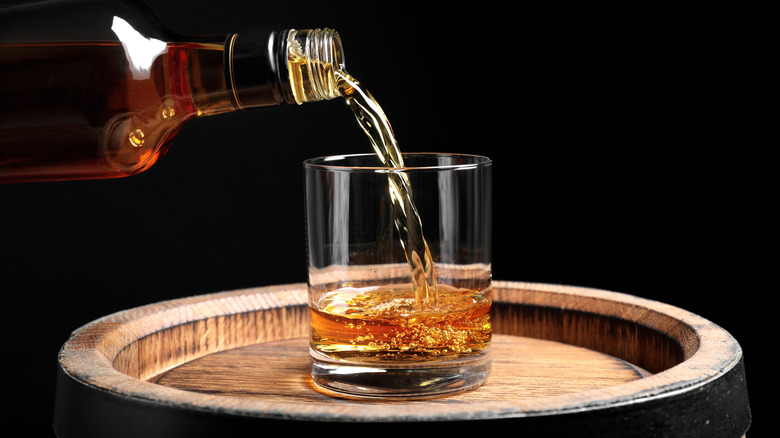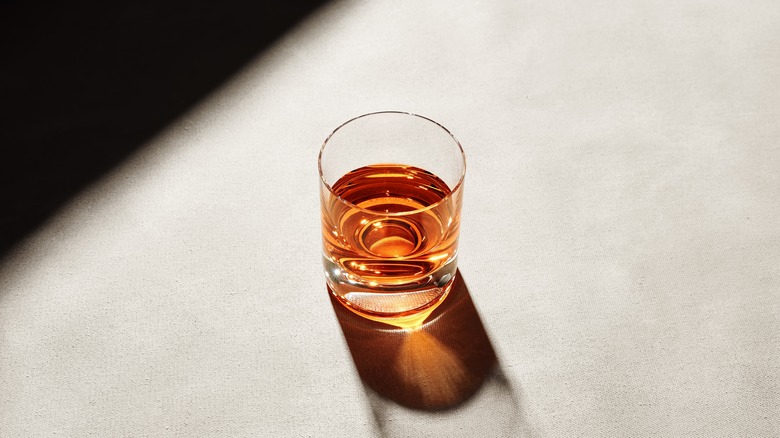The Best Whiskey To Try For Beginners, According To An Expert
Whether you're just beginning to dip your toes into the world of whiskey or searching for a gift for a loved one, it's not immediately obvious what makes a good entry-level whiskey. There are many types of whiskey with huge variations in both cost and quality. We recently had a chance to talk about the topic with Chris Blatner, Executive Bourbon Steward, Founder of Urban Bourbonist, Executive Director of Bourbon Charity, and host of the Urban Bourbon Hour.
"There are two that got me into bourbon and rye that I always recommend and I think are still great examples that can do anything you want: drink great neat, with the addition of ice or water, or in a cocktail," Blatner told us. "Those are Old Grand-Dad Bonded Bourbon (for some added oomph you could upgrade to Old Grand-Dad 114), and Rittenhouse Rye (for some added oomph you could upgrade to Pikesville rye)."
For those of you who aren't familiar with the difference between bourbon and rye, it largely comes down to a difference in ingredient percentages. Bourbon must be made with at least 51% corn, which lends bourbon its signature sweetness. Rye whiskey must be made with at least 51% rye, which is a grain that gives the whiskey notes of spicy black pepper. Blatner went on, "These whiskeys are classics for a reason and provide some of the best value in whiskey while offering a drinking experience that is just as good as bottles that cost twice as much."
A dive into liquid gold
We love these beginner picks because they both embody the core character of their whiskey category. Old Grand-Dad has been around since the 1800s, and you simply can't imitate that level of experience. When Blatner says that Old Grand-Dad is a bonded bourbon, that means it's bottled in bond, which was a historic attempt by the U.S. government to establish quality control in bourbon, and we are all better off because of it. Before bonded bourbons, distillers would use ingredients like shoe polish and tobacco spit to create their product, which was a huge health risk.
We don't have that problem anymore, but distillers will still follow the guidelines and label their whiskey bottled-in-bond as a sign of quality. It doesn't have the flashiest bottle design, but that just means you don't have to pay for the marketing, making this an affordable option for those of us on a budget. The Old Grand-Dad 114 Blatner mentioned is the 114-proof version as opposed to the standard 100-proof version.
Rittenhouse Rye is a bar staple that also happens to be bottled-in-bond. Crisp, flavorful, and eminently sippable, Rittenhouse Rye dates back to the 1930s after Prohibition ended. It doesn't quite have the same brand recognition as some more popular whiskeys, but any bartender worth their salt will be familiar with Rittenhouse. Both Rittenhouse and Pikesville Rye are distilled by Heaven Hill.

